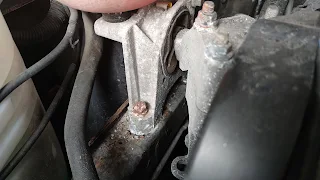Introduction:
Have you ever experienced your car vibrating noticeably when you start off in first gear? It's a common concern among drivers, and while it can be unsettling, understanding the root causes can often lead to simple solutions. In this comprehensive guide, we'll delve into the various reasons why your car may vibrate when leaving in first gear and explore effective solutions to address the issue.
Causes:
1. **Clutch Issues**:
- Worn Clutch: One of the primary causes of vibrations when leaving in first gear is a worn-out clutch. Over time, the clutch friction material wears down, resulting in reduced grip and increased slippage, leading to vibrations during engagement.
- Clutch Misalignment: Misalignment of the clutch components can also cause vibrations. This misalignment can occur due to improper installation or wear and tear over time.
2. **Engine Mounts**:
- Broken or Worn Engine Mounts: Engine mounts are designed to absorb engine vibrations and minimize transmission of these vibrations to the chassis. If the engine mounts are worn or damaged, they may fail to dampen vibrations effectively, resulting in noticeable shaking when starting in first gear.
3. **Transmission Problems**:
- Worn Transmission Components: Wear and tear on transmission components such as gears, bearings, or shafts can lead to irregularities during gear engagement, causing vibrations.
- Low Transmission Fluid: Insufficient transmission fluid levels can result in poor lubrication and increased friction within the transmission, leading to vibrations and other transmission-related issues.
4. **Driveline Components**:
- Worn Universal Joints: Universal joints, which are present in the driveline, can wear out over time, resulting in excess play and vibrations during acceleration.
- Driveshaft Imbalance: An imbalanced driveshaft can cause vibrations, especially during acceleration. Imbalance may occur due to damage, improper installation, or wear and tear.
5. **Tire and Wheel Issues**:
- Uneven Tire Wear: Uneven tire wear, caused by misalignment, improper tire inflation, or worn suspension components, can lead to vibrations, particularly when accelerating.
- Wheel Imbalance: Unbalanced wheels can cause vibrations at certain speeds, including when starting off in first gear. This imbalance can occur due to uneven tire wear or improperly balanced wheels.
Solutions:
1. **Clutch Replacement**: If the clutch is worn, replacing it with a new one can eliminate vibrations during gear engagement. Ensure that the clutch components are properly aligned during installation to prevent future issues.
2. **Engine Mount Replacement**: Replace worn or damaged engine mounts with new ones to restore proper vibration dampening. Inspect all engine mounts thoroughly, as multiple mounts may need replacement.
3. **Transmission Maintenance**: Regular transmission maintenance, including fluid checks and replacements, can prevent vibrations caused by low fluid levels or worn transmission components. Consult your vehicle's manual for recommended service intervals.
4. **Driveline Inspection and Repair**: Inspect universal joints, driveshafts, and other driveline components for wear or damage. Replace any worn or damaged parts to eliminate vibrations and ensure smooth operation.
5. **Tire and Wheel Maintenance**: Maintain proper tire inflation and alignment to prevent uneven tire wear. Balance wheels regularly to eliminate vibrations caused by wheel imbalance. Replace worn tires and address any suspension issues promptly.
Conclusion:
Experiencing vibrations when leaving in first gear can be concerning, but it's often indicative of underlying issues that can be addressed with proper diagnosis and maintenance. By understanding the potential causes outlined in this guide and implementing the suggested solutions, you can enjoy a smoother driving experience and prolong the lifespan of your vehicle's components. If vibrations persist despite troubleshooting efforts, consult a qualified mechanic for further diagnosis and repair.



